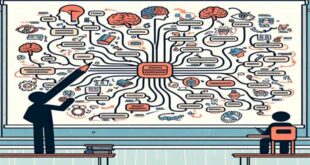Artificial intelligence tools, amidst excitement, sensationalism, and fear, are revolutionizing various aspects of daily life, including medicine. ChatGPT has been explored in medical fields, science writing, and medical education. In this study, we aimed to evaluate ChatGPT’s efficacy in neurosurgical education by integrating it into the annual exam for neurosurgical residents at Geneva University Hospitals. These residents undergo this exam …
Read More »Technology
Landscape of digital technologies used in the national health service in England
In England, digital technologies are revolutionizing health and social care, covering a range of hardware and software used across healthcare. This study aims to identify digital technologies used by National Health Service clinical commissioning groups (NHS CCGs) in England, revealing variations in digital capability across regions and addressing issues of diversity, equity, and inclusion in healthcare provision. The health care …
Read More »An empirical assessment of the influence of digital transformation on sports corporate sustainability
The trend of digital transformation is essential for the sustainable development of sports enterprises within the emerging digital economy. However, there’s a lack of empirical studies on how digital transformation impacts the sustainability of sports organizations at the micro level. This study uses a sustainable growth dynamic model to analyze 48 sports corporations listed in China from 2012 to 2021. …
Read More »Toward institutionalization of Responsible Research and Innovation (RRI)
The study investigates the evolution and application of Responsible Research and Innovation (RRI) frameworks in Spanish technological centers. It develops a process-maturity framework to assess their commitment to RRI principles, facilitating learning and bridging the gap between theory and practice. This framework serves as both an evaluation methodology and a management system for promoting responsible behavior in innovative activities. Over …
Read More »The role of digital transformation in achieving sustainable supply chain management in industry 4.0
The COVID-19 pandemic sparked significant digital transformation in supply chain management, though sustainability remains a challenge. This editorial presents scholarly research on digital transformation in logistics and proposes a novel framework to help the industry navigate disruptions caused by the pandemic and aid in recovery. The logistics industry is rapidly advancing due to the adoption of new digital technologies and …
Read More »Classrooms in the metaverse
The concept of the metaverse, popularized by science fiction authors like Neil Stephenson, describes a shared virtual space accessed through avatars, with its portrayal in media shaping public perception. Despite its futuristic depictions, VR technology has existed for decades, undergoing cycles of hype and disillusionment. As VR becomes more accessible, its potential for educational purposes grows, aligning with Moore’s typology …
Read More »Collaborative intelligence and its current applications
This review explores collaborative intelligence, emphasizing the synergy between humans and AI for enhanced performance. It introduces the concept and outlines criteria for evaluating AI systems’ ability to enable collaboration. A systematic review of 1,250 AI applications from 2012 to 2021 identified 16 systems meeting these criteria, showcasing the potential for collaborative human-AI teams to improve outcomes across various domains …
Read More »The position’s of libraries on social media
This research examines how public perceptions of libraries, expressed through social media discourse, influence their role as public spaces. Using qualitative methods and data collected from various online sources, including Twitter, blogs, and news articles, the study analyzed 18,461 texts related to libraries in Indonesia. Out of these, 82 texts were selected for critical discourse analysis, revealing that social media …
Read More »Economics students behavioural intention and usage of ChatGPT in higher education
The Chat Generative Pre-trained transformer, known as ChatGPT, holds promise for transforming higher education, but factors influencing its adoption among economics students in Ghanaian institutions are unclear. Utilizing the Unified Theory of Acceptance and Use of Technology (UTAUT2), a study surveyed 306 Ghanaian economics students, revealing design and interactivity significantly impact perceived trust, while factors like social influence and hedonic …
Read More »Factors influencing intention for reusing virtual reality at theme parks
This paper examines factors influencing visitors’ intent to reuse Virtual Reality (VR) in Malaysian theme parks, focusing on perceived usefulness, ease of use, enjoyment, and compatibility, with visitor satisfaction mediating the relationship. Results suggest ease of use, enjoyment, and compatibility positively influence intent to reuse VR, with satisfaction mediating ease of use and compatibility’s impact. Recommendations include enhancing ease of …
Read More » Canadian Academy Discover, Publish, Thrive
Canadian Academy Discover, Publish, Thrive









